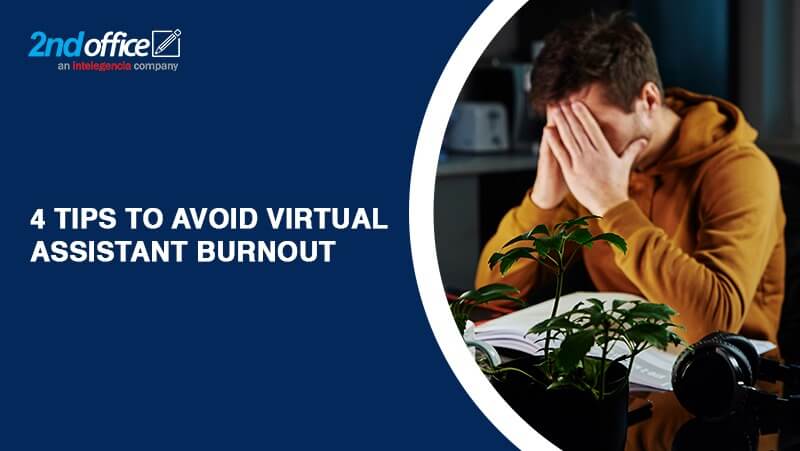
While work-from-home employees are proven to be more productive and engaged than their on-site counterparts, they are not exempted from burnout. Sure, work-from-home employees, such as your virtual assistants, don’t have to deal with the stress of the daily commute and enjoy a better work-life balance. But while their jobs don’t (usually) require physical labor, having to sit down and work in front of a computer for almost the entire day can be quite draining.
Remote work tasks also tend to be long-term and monotonous, and sometimes, VAs have to juggle multiple clients and deadlines at once.
Help them avoid burnout by keeping the following tips in mind:
1. Set Boundaries
The perfect recipe for burnout is thinking that your virtual assistant is available round-the-clock. While flexibility in work hours is quite normal in the work-from-home setup, there should be specific times when you can contact your VA. Create a routine that sets when you want to be updated and stick to it. A clear schedule would reduce the anxiety some VAs experience from surprise communications for impromptu tasks, and would also strengthen the employee-employer relationship.
2. Don’t Make Your VA Overwork
Probably the biggest factor that contributes to burnout is having too much work. Just remember that people aren’t machines; they get exhausted when they reach their limit. Set an acceptable work quota for your VA. You could do “research” first. For instance, for the first week, let your VA do a specific volume of tasks and observe the quality of his or her output. If the quality of the work turned in is up to your standards, then you can stick to it. If not, try to lessen it bit by bit until you reach the perfect balance between an appropriate workload and uncompromised quality.
3. Promote Healthy and Open Communication
Another reason why VAs get burned out is a lack of open communication. Sort problems and challenges out in a professional manner. Let your VA feel that he or she is part of the team and that no issue can’t be resolved without a proper and healthy discussion. You can also send out an anonymous survey to find out what challenges your employees are currently facing.
4. Motivate
No matter how easy a task is, if it goes on forever, your VA will eventually get sick of it. The solution is simple: Don’t make him or her stick to just one type of work. Switch things up to beat the boredom. Also, motivate your VA by providing opportunities for career growth. This could be in the form of additional skills training or promotion. Lastly, know that energy is infectious, so perk up on the next Zoom meeting. You’ll instantly see a change in your VA’s energy level.
Remote work exhaustion is a very real thing. While the nature of the job is quite flexible and it can be done freelance, disorganization, miscommunication, and uneven assignment of workload are some serious causes of burnout. If you’re a VA, a little self-care goes a long way, and if you’re the employer, making your VAs feel that you genuinely care about them is key to a healthy working relationship.

